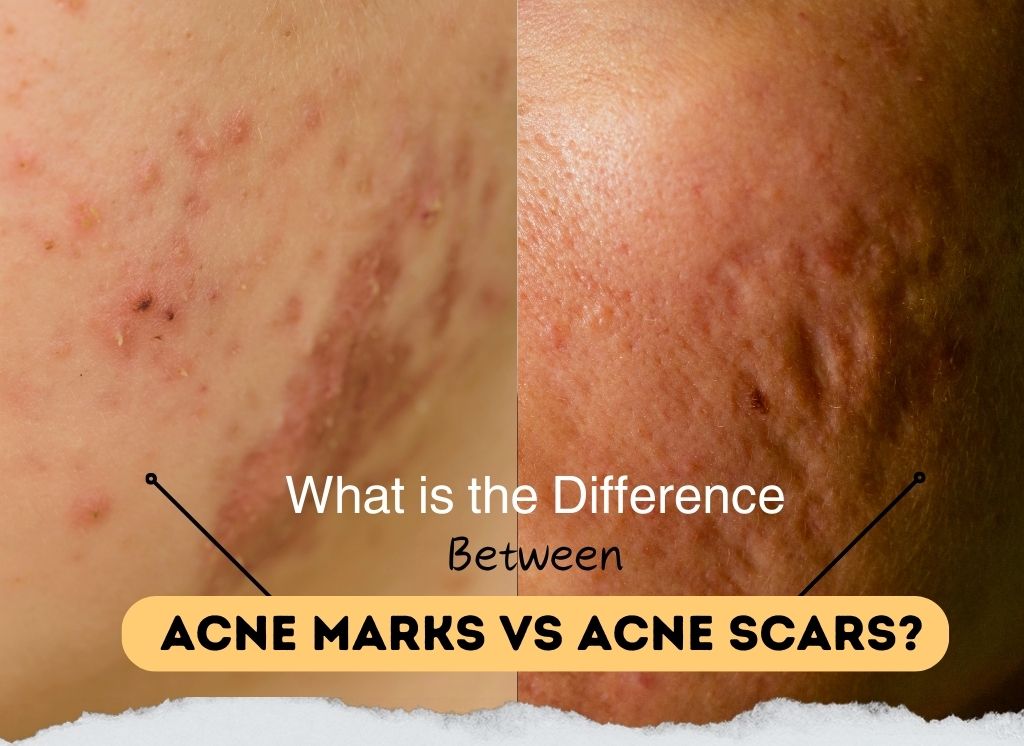Acne is a common skin condition that affects millions of people worldwide, leaving behind reminders of its presence in the form of marks and scars. While the terms "acne marks" and "acne scars" are often used interchangeably, they refer to distinct skin issues. At Truly Permanent Beauty, we believe that knowledge is key to achieving and maintaining radiant, flawless skin. We'll discuss the differences between acne marks and acne scars treatment in Kolkata, helping you better understand these skin concerns.
Acne Marks: The Lingering Imprints
Acne marks, often referred to as post-inflammatory hyperpigmentation (PIH), are discolorations that remain on the skin after an acne lesion has healed. These marks can appear as red, purple, brown, or black spots, depending on your skin tone. They result from the inflammation caused by acne, triggering an overproduction of melanin – the pigment responsible for skin color.
Causes of Acne Marks:
- Inflammation: When a pimple, papule, or cyst forms, the surrounding skin becomes inflamed. This inflammation triggers the skin's natural response to produce excess melanin, leading to discoloration.
- Sun Exposure: Exposure to ultraviolet (UV) rays can exacerbate acne marks. Sun damage can darken existing marks and delay the healing process.
- Picking or Squeezing Pimples: Manipulating acne lesions by picking or squeezing can worsen inflammation and increase the likelihood of developing marks.
Treatment for Acne Marks:
- Topical Treatments: Products containing ingredients like niacinamide, alpha arbutin, and vitamin C can help lighten hyperpigmentation.
- Chemical Peels: Dermatological procedures such as chemical peels can exfoliate the skin, promoting the fading of acne marks.
- Sunscreen: Protecting your skin from UV rays with a broad-spectrum sunscreen helps prevent further darkening of acne marks.
Acne Scars: The Permanent Reminders
Unlike acne marks, acne scars are alterations in the skin texture that result from the healing process of severe acne lesions. Scars are a sign that the skin's collagen production was disrupted during the healing process, leading to either excess or insufficient collagen formation.
Types of Acne Scars:
- Ice Pick Scars: Small, deep pits that resemble puncture wounds.
- Boxcar Scars: Broad depressions with sharply defined edges.
- Rolling Scars: Wavy or undulating depressions in the skin.
Causes of Acne Scars:
- Severe Acne: Cystic acne or nodules are more likely to cause scarring due to the depth of inflammation.
- Genetics: Some individuals may be genetically predisposed to scar more easily than others.
- Delay in Treatment: Not addressing acne promptly increases the risk of scarring.
Treatment for Acne Scars:
- Laser Therapy: Fractional laser treatments can stimulate collagen production and improve the appearance of scars. We help you get rid of acne scars with a prominent laser acne scar treatment in Kolkata.
- Microneedling: This procedure involves creating tiny punctures in the skin, promoting collagen synthesis and improving scar texture.
- Dermal Fillers: Injectable fillers can temporarily fill depressed scars, providing a smoother skin surface.
Distinguishing Between Marks and Scars: A Crucial Step
Understanding whether you're dealing with acne marks or scars is crucial for effective treatment. Acne marks, being discolorations, typically respond well to topical treatments and fade over time. On the other hand, acne scars require more targeted approaches, often involving professional interventions to improve skin texture.
Seeking Professional Advice:
- Dermatologist Consultation: Consulting a cosmetologist is essential if you're unsure about the nature of your skin concern. They can assess your skin type and severity of the condition and recommend an appropriate treatment plan.
- Customized Skincare Routine: A dermatologist can help you develop a personalized skincare routine tailored to your skin's needs, addressing both marks and scars.
Preventing Acne Marks and Scars: Truly Permanent Beauty's Approach
While treating existing acne marks and scars is essential, preventing new ones from forming is equally crucial. Truly Permanent Beauty advocates a holistic approach to skincare that focuses on preventing acne and minimizing the risk of marks and scars.
Tips for Prevention:
- Gentle Skincare: Avoid harsh cleansers and abrasive exfoliants that can irritate the skin and exacerbate inflammation.
- Timely Treatment: Address acne promptly to minimize the risk of scarring. Avoid picking or squeezing pimples, as this can worsen inflammation.
- Sun Protection: Use a broad-spectrum sunscreen with at least SPF 30 to protect your skin from harmful UV rays, reducing the risk of hyperpigmentation.
Conclusion
Distinguishing between acne marks and acne scars is crucial for effective skincare. Acne marks, characterized by discoloration, often fade with time and targeted treatments. Acne scars, on the other hand, require more intensive interventions to improve skin texture. Truly Permanent Beauty encourages you to embrace a comprehensive skincare routine, combining preventive measures with professional guidance to achieve radiant and flawless skin. Remember, understanding your skin's unique needs is the first step towards Truly permanent beauty. But in case you fail to achieve a flawless look, our experts are there to treat your acne scars and acne marks and give you flawless skin.
Other related blogs: Is Mole Removal Safe?

